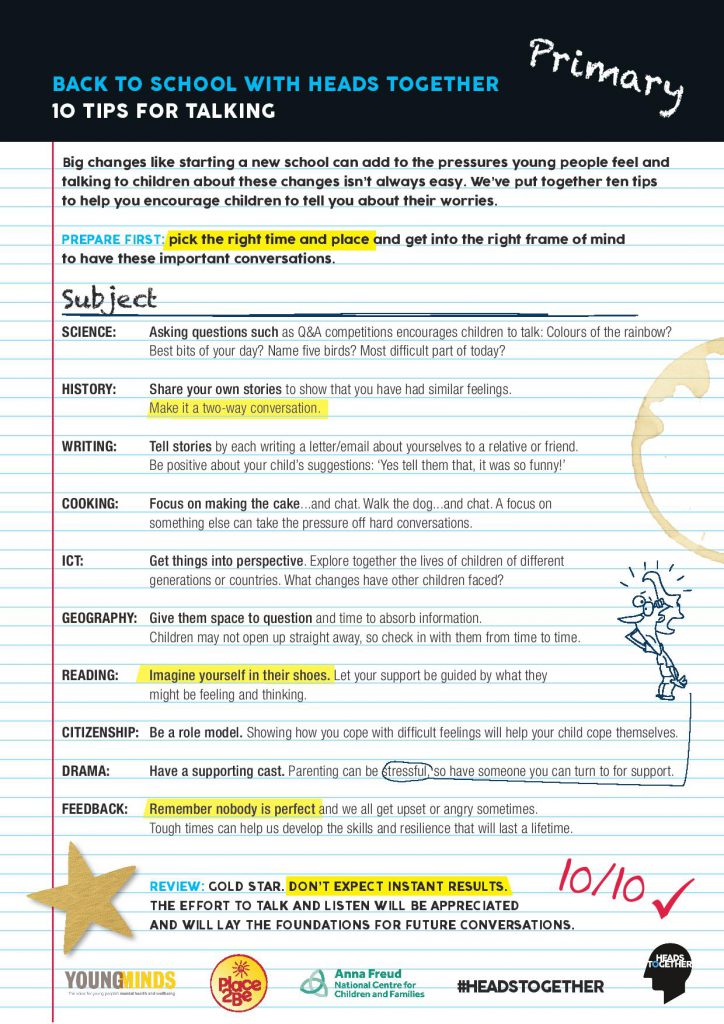Big changes like starting a new school can add to the pressures young people feel and talking to children about these changes isn’t always easy. We’ve put together 10 tips to help you encourage children to open up and talk about their worries.
Please join us today and download the 10 Tips for Talking – developed with experts from our Charity Partners YoungMinds, Anna Freud National Centre For Children and Families and Place2Be – so you can start that conversation yourself or share with someone you know. Be sure to let us know how it goes by tagging #HeadsTogether on your social media of your choice.
Download the tips for primary school children
Download the tips for secondary school children
Today let’s change the conversation on mental health and wellbeing with young people together.

PREPARE FIRST: pick the right time and place and get into the right frame of mind
to have these important conversations.
SCIENCE: Asking questions such as Q&A competitions encourages children to talk: Colours of the rainbow? Best bits of your day? Name five birds? Most difficult part of today?
HISTORY: Share your own stories to show that you have had similar feelings.
Make it a two-way conversation.
WRITING: Tell stories by each writing a letter/email about yourselves to a relative or friend. Be positive about your child’s suggestions: ‘Yes tell them that, it was so funny!’
COOKING: Focus on making the cake…and chat. Walk the dog…and chat. A focus on
something else can take the pressure off hard conversations.
ICT: Get things into perspective. Explore together the lives of children of different
generations or countries. What changes have other children faced?
GEOGRAPHY: Give them space to question and time to absorb information.
Children may not open up straight away, so check in with them from time to time.
READING: Imagine yourself in their shoes. Let your support be guided by what they
might be feeling and thinking.
CITIZENSHIP: Be a role model. Showing how you cope with difficult feelings will help your child cope themselves.
DRAMA: Have a supporting cast. Parenting can be stressful, so have someone you can turn to for support
FEEDBACK: Remember nobody is perfect and we all get upset or angry sometimes.
Tough times can help us develop the skills and resilience that will last a lifetime.
How did it go? Let us know via: Twitter: @Heads_Together / Instagram Heads_Together /Facebook: www.facebook.com/HeadsTogetherCampaign
This is part of Heads Together activity with The Duke and Duchess of Cambridge on helping children cope with change. Read more about it including a speech from The Duke.



